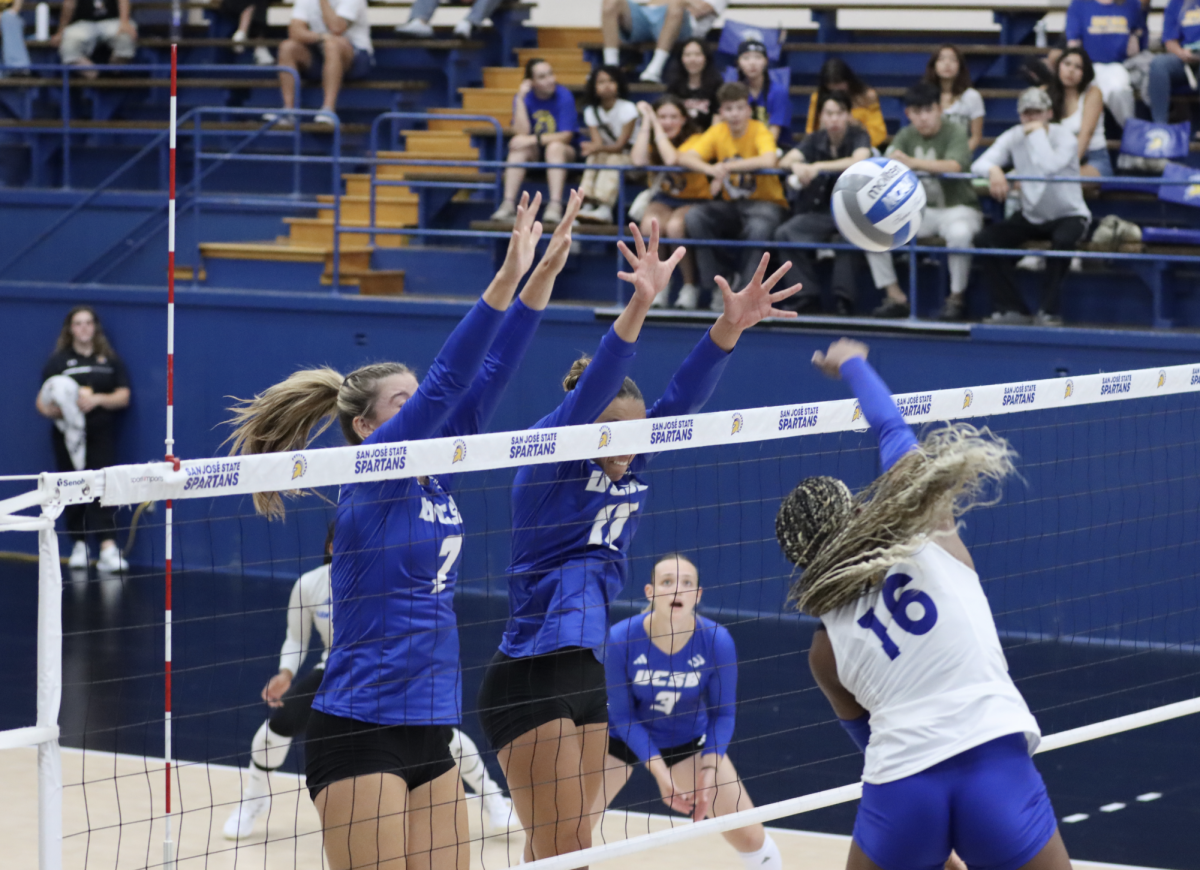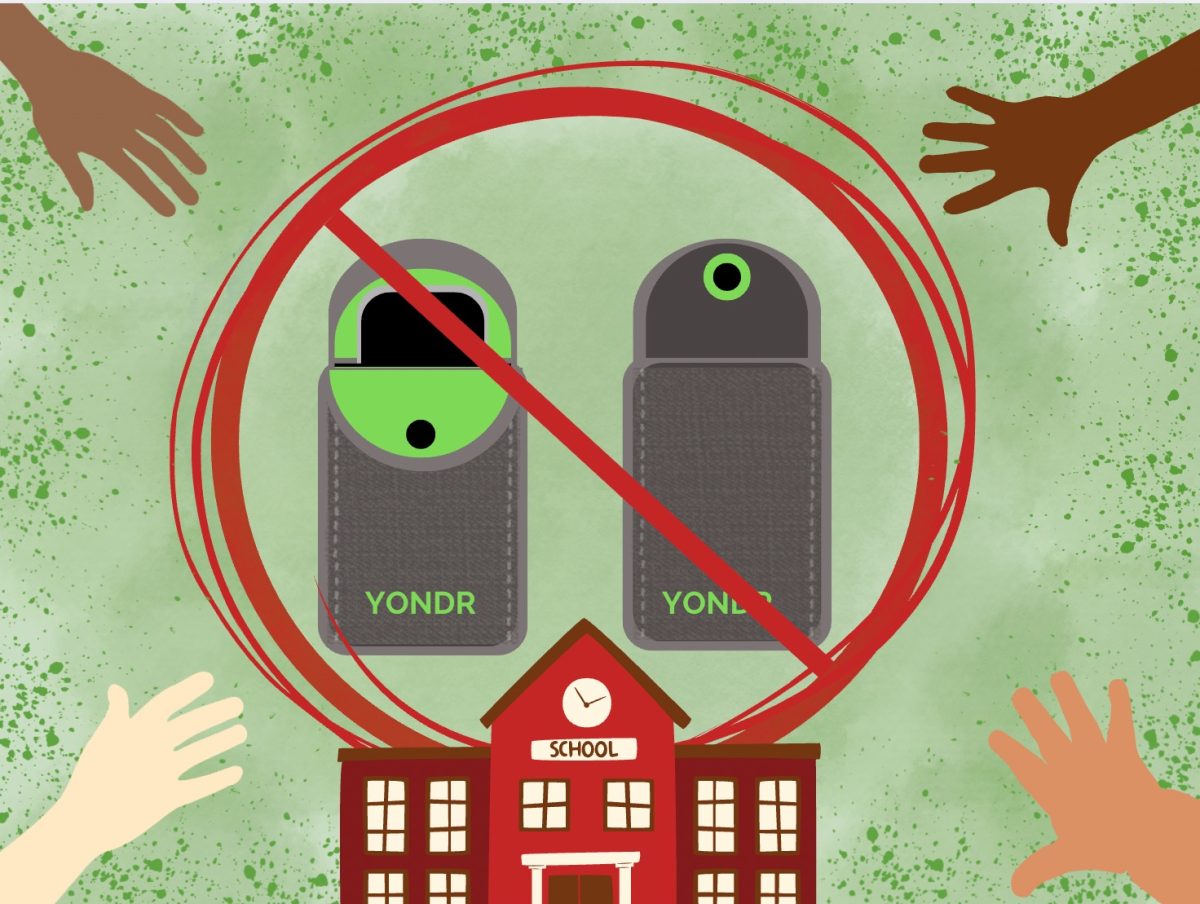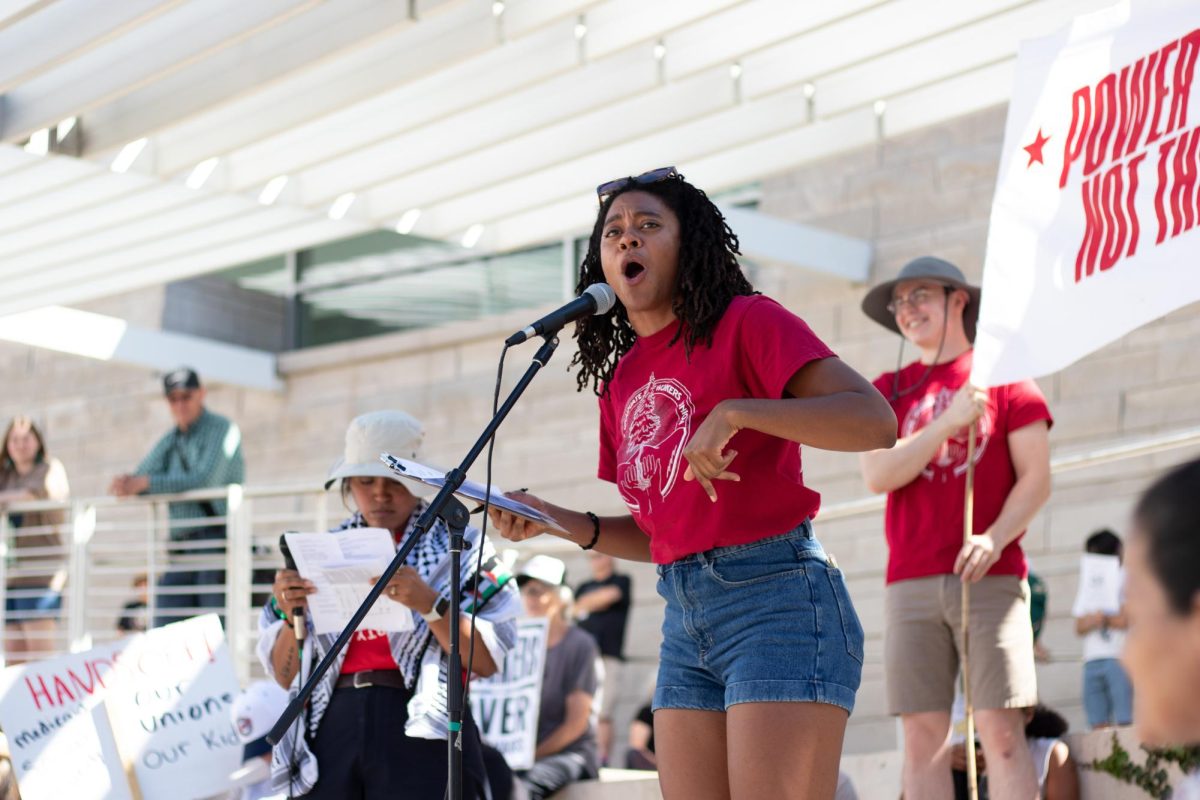San Jose State’s Human Rights Institute hosted a panel featuring Afghanistan journalists Masuma Mohammadi and Faisal Karimi and research scholars documenting the crisis in Afghanistan on Wednesday at the Mack Lundstrom Newsroom at SJSU.
The scholar program, hosted by the Human Rights Institute, provides opportunities for visiting international scholars and educational opportunities for SJSU students, faculty and community members, according to its website.
On August 15, 2021, Afghanistan’s capital Kabul was captured by the Taliban which led to the overthrow of the Islamic Republic of Afghanistan and reestablished the Islamic Emirate of Afghanistan under the control of the Taliban, according to an Associated Press article published the same day.
Halima Kazem-Stojanovic, lecturer in Journalism and Mass communications at SJSU said the day Kabul fell to the Taliban, she got hundreds of heartbreaking messages from friends and colleagues describing the situation in Afghanistan, asking for help.
In an email sent on August 15, 2021, Kazem-Stojanovic wrote to her fellow SJSU colleagues to see if they could organize with other universities to help evacuate vulnerable people in Afghanistan.
“I’m devastated after 20 years of democracy and progress, Afghanistan has fallen,” Kazem-Stojanovic wrote. “. . . I’m inundated with calls and messages from Afghan professors and journalists I have worked with for 20 years, and I’m part of a few groups scrambling to lobby for evacuation plans for vulnerable people.”
Kazem-Stojanovic reached out to fellow Afghan professors who were part of the SJSU department grant and asked them to fill out U.S. visa applications, while organizing a push to have SJSU colleagues call elected officials, reach out to other universities including University of California, Berkeley, and ask for emergency funds to help evacuate people.
“It’s been nine months of learning for us, what it means to bring people to safety, and what it means to bring people who do the same work we do,” Kazem-Stojanovic said during the panel. “. . . and to have them come here and share with us what they do, we learn from them and they learn from us.”
Mohamaddi and Karimi are the first Afghan scholars to be a part of SJSU’s visiting Afghan scholar program, which started “the day [Afghanistan] fell to the Taliban,” according to William Armaline, associate professor of sociology and founding director of the SJSU Human Rights Institute.
“We didn’t, we didn’t get them out. They got themselves out. We assisted in ways that you know, in helping but they knew the terrain. They knew the conditions, they knew how to maneuver through their environments. It was a lot of their own doing,” Kazem-Stojanovic said.
Karimi is here as a scholar conducting research regarding media in human rights and interdisciplinary research in media communications in human rights.
“I also left my house, my family, and my kids at my brother’s house, to prevent any possible danger from the Taliban side,” Karimi said during the panel.
With more than 20 years experience in journalism, Karimi currently is also the founder and managing director of the Afghanistan Institute for Research Studies and he founded the only women’s news agency called Afghanistan Women’s News in 2016.
Karimi spoke about how he had to destroy the sim card on his phone so he could not be tracked through GPS by the Taliban.
“I stayed one night at my brother’s house, and the next night I stayed at my sister’s house, the other night I hid in my father-in-law’s house, I wore local clothes, I grew a beard, so I could not be identified by the Taliban,” Karimi said.
Mohamaddi is a journalist and women’s rights activist, who has worked as a radio reporter for the United Nations News service and “hello countrymen, countrywomen,” a popular radio program in Afghanistan.
Kazem-Stojanovic said Mohamaddi also established her own organization offering resources for women reporters in her home country and to raise public awareness of women’s rights while strengthening their presence in society, politics and the economy.
“I still remember August 15 as the worst day of my life, the day when the achievements of many years of thousands of Afghan men and women were lost, and millions of people were disappointed in Afghanistan,” Mohamaddi said during the panel.
In 2020, Mohammadi also created the Equality News agency, and worked with other media outlets to publish articles about women’s issues whose work in this field put her “in grave danger,” said Kazem-Stojanovic.
“My colleagues and I were in our office until we heard the Taliban were coming, no one expected this to happen, we left our office immediately [and] we were only able to take our laptops with us,” Mohamaddi said. “And to quickly destroy all our documents with details of our colleagues so they would not fall into the hands of the Taliban.”
Mohamaddi rushed home to get her children, 19-years-old and 9-years-old respectively, and move to the house of one of their relatives, she said during the panel.
“I did not realize this was our last moment of our presence in our house, and we would never go back,” Mohamaddi said.
After the panel, questions were open to the audience.
Matthew McCormick, assistant director of the SJSU international house, asked how the international community can help Afghanistan.
“It seems that we feel that the international community for Afghans is not a priority,” Karimi said.
After the Russian invasion of Ukraine on February 24, advocates worried the Ukrainian war would overshadow the Afghanistan conflict, according to an April 4 NPR article.
“. . . Ukrainian refugees rightfully so, need the support and assistance, but there’s been a lot of discrimination against black and brown refugees as opposed to white, European refugees,” Kazem-Stojanovic said in an interview.
Kazem-Stojanovic feels the United States holds more of a responsibility to Afghanistan than Ukraine.
“The US’ funding under the Soviet Cold War, and created these groups, and the funding that went to Pakistan in the last 20 years, that continued to fuel the Taliban, which forced their resurgence,” Stojanovic said. “So there’s a direct responsibility that the United States has in this not just in the last year, not just in the last 20 years, but for almost four years.”
Mohamaddi hopes the international community will listen to Afghan voices and not believe the Taliban in their “vow” to respect women, according to an Aug. 17, 2021 Associated Press article.
“They’re lying, they’re completely lying. They haven’t changed their mind, their views . . . They are all the same as they were 20 years ago,” Mohamaddi said.
The Visiting Scholars Program is funded through for the 2022-2023 academic year at SJSU, Armaline said.
“They will be working on their research, in partnership with other Afghan scholars, but also in partnership with professors and students here,” Armaline said.






































